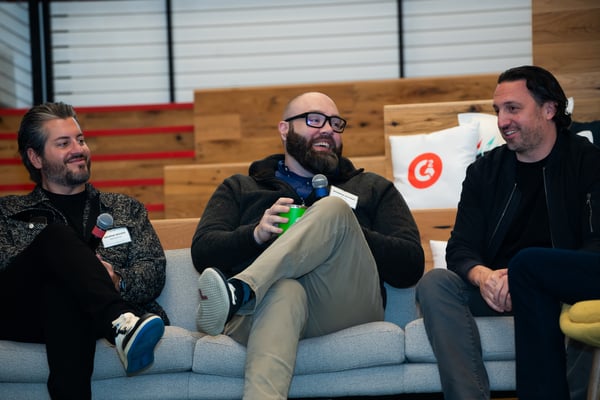"The Best Way to Predict the Future is to Invent it"
– Alan Kay

The future of work with AI is inevitable. The investments over the past decade to acquire data and train large language models (LLM) is finally paying off. We are seeing rapid improvements year over year from the top players like OpenAI, Microsoft, Google, X, and Anthropic.
The future of AI isn't just about algorithms or who can get the most parameters—it's about knowledge.
While media coverage of these companies have been exciting and enthusiastic, we are now seeing the emergence of litigation as groups realize their copyrighted materials were used to train the LLMs without consent or compensation.
Any company watching this play out realizes that the more their workers leverage GenAI tools, the more their intellectual property is captured and compromised. Futher, they erode their competitive advantage as these 3rd party GenAI companies strengthen theirs.
The circumstance creates a bit of a paradox. LLMs cannot improve without more training data and companies cannot realize reliable results from LLMs without including their own contextual data.
Exacerbating the issue is the state of documents and data in a company. Companies use disparate systems, data is siloed, and documents are thrown in big buckets we call "Google Drive", "OneDrive", or "Box.com". It's seemingly chaos.
As a result, the problem GenAI creates for businesses include:
- How can we protect our data while still using LLMs?
- How can we work so we are reinforcing our LLMs and increasing LLM reliability?
- How can we train our staff quickly enough to stay ahead of the wave?
- How can we retain and leverage our knowledge as a competitive advantage without giving it away to other companies?
The LLMs are quickly becoming excellent for controlled demonstrations and unreliable for businesses.
At QFlow, we are obsessed about answering these questions. Ultimately, the barrier we see is how to transform what we know into something usable by AI models without sacrificing our competitive advantage and intellectual property.
For the past two decades, QFlow has built tools helping organizations better organize and store their business data and documents. We are a big proponent of privacy, security, integration, and automation.
We are already perfectly designed for capturing data and documents through direct interaction and through integrations. We already have a powerful engine to automate business flows. We already create meaningful associations and connections between all the data points and documents.
We are inventing the future by seamlessly converting rigid traditional data models into dynamic Knowledge Graphs.
We’ll enhance business data objects and data relationships with expansive nodes and edges. All while making the experience incredibly intuitive for end users.
We found that creating a user experience that combines ease of use with paybacks is critical to getting value from business systems. Who would invest the time tagging or integrating their data and documents if there wasn't a clear payoff for doing so? No one.
By building robust Enterprise Knowledge Graphs and integrating local LLMs, we can transform how businesses harness their own knowledge by making it more effective and intuitive for everyone.